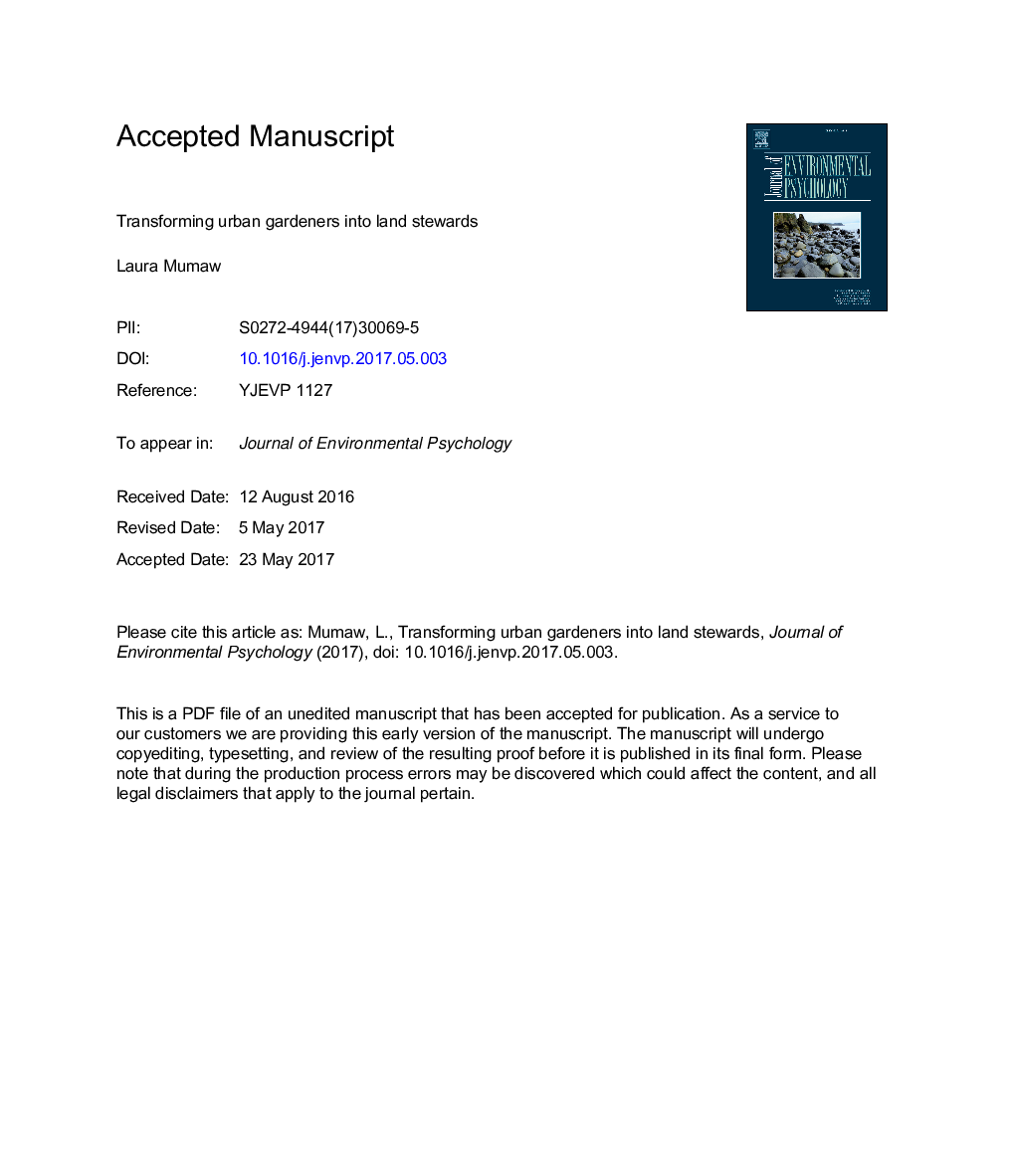| Article ID | Journal | Published Year | Pages | File Type |
|---|---|---|---|---|
| 5034913 | Journal of Environmental Psychology | 2017 | 46 Pages |
Abstract
This qualitative study explores how urban gardeners were supported to become land stewards through a wildlife gardening program in Melbourne Australia, and how this process occurred. From interviews of 16 program members in their gardens, the effects of program participation on reported gardening purpose and practice, and attachments to place, nature, and community, were investigated. Using inductive analysis, a stewardship development model was posited and compared to PEB change models. A first phase introduces participants to the purpose, activities, and support for land stewardship, and their potential role. A development phase follows where connections to place deepen; stewardship knowledge, competencies and activities strengthen; and commitment to stewardship increases through learning by doing, supported by rewarding results, validation, community involvement, and accessible resources. Private land stewardship values and practice can develop from wildlife gardening, a means to foster urban biodiversity while strengthening connections between residents and nature, place, and community.
Related Topics
Social Sciences and Humanities
Psychology
Applied Psychology
Authors
Laura Mumaw,
